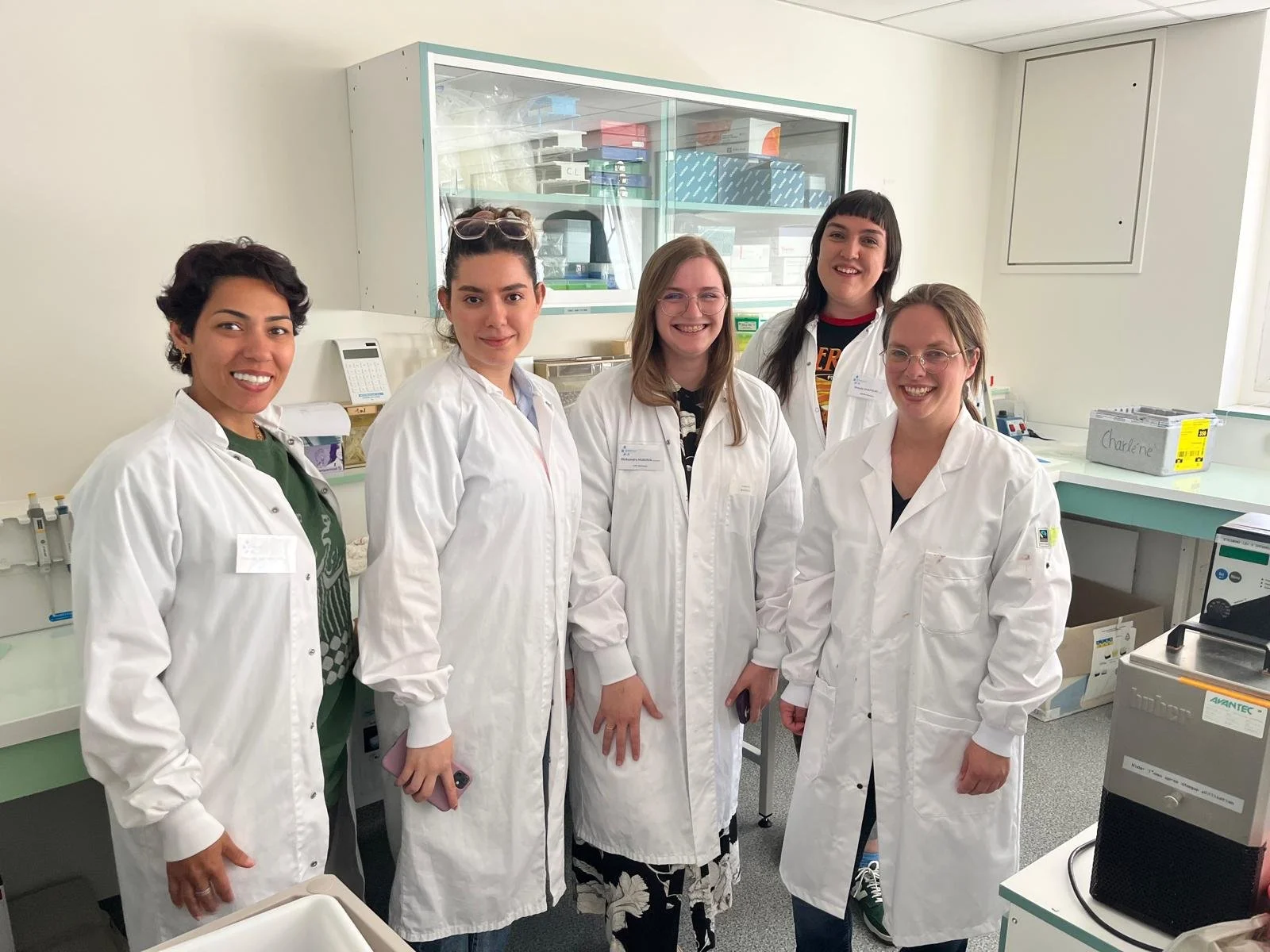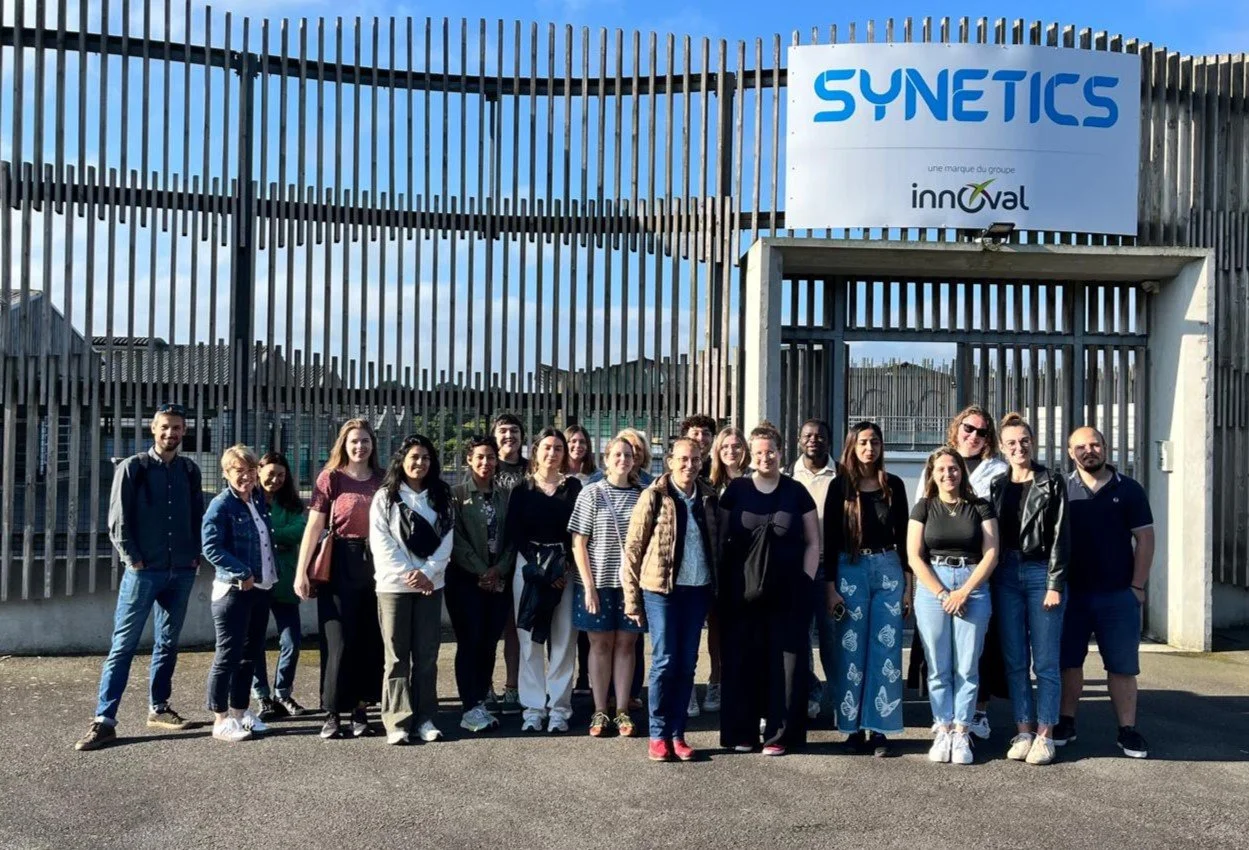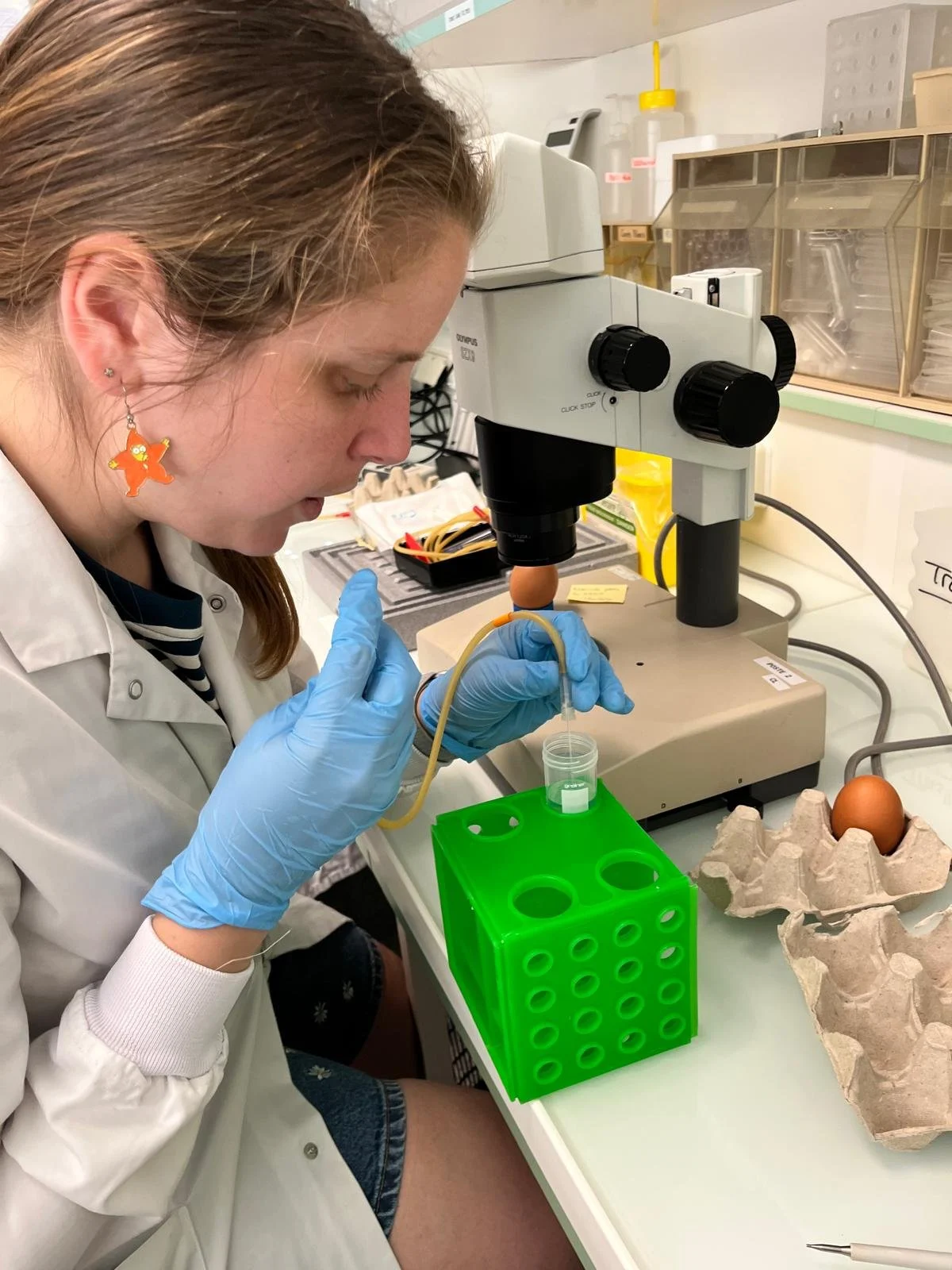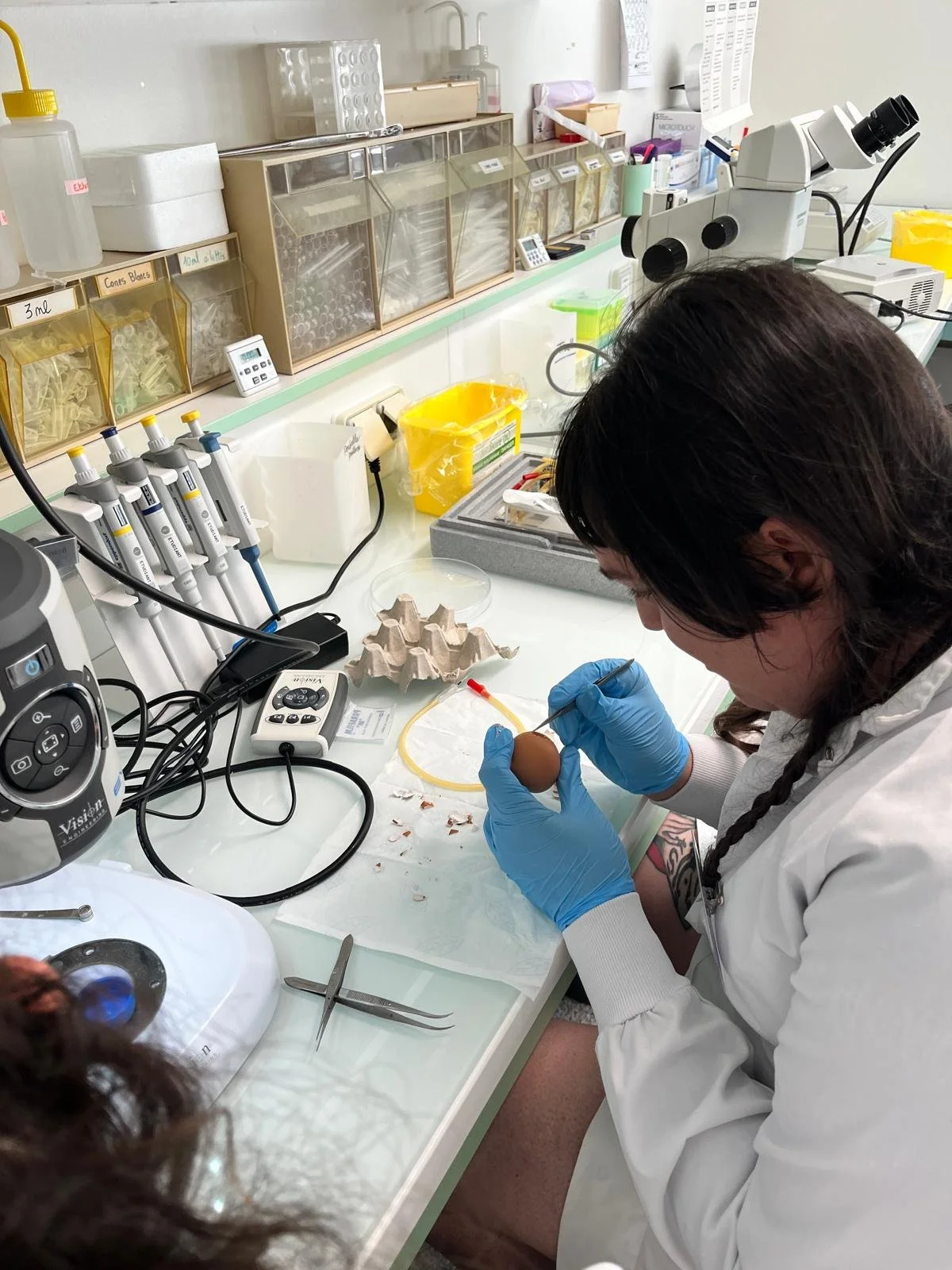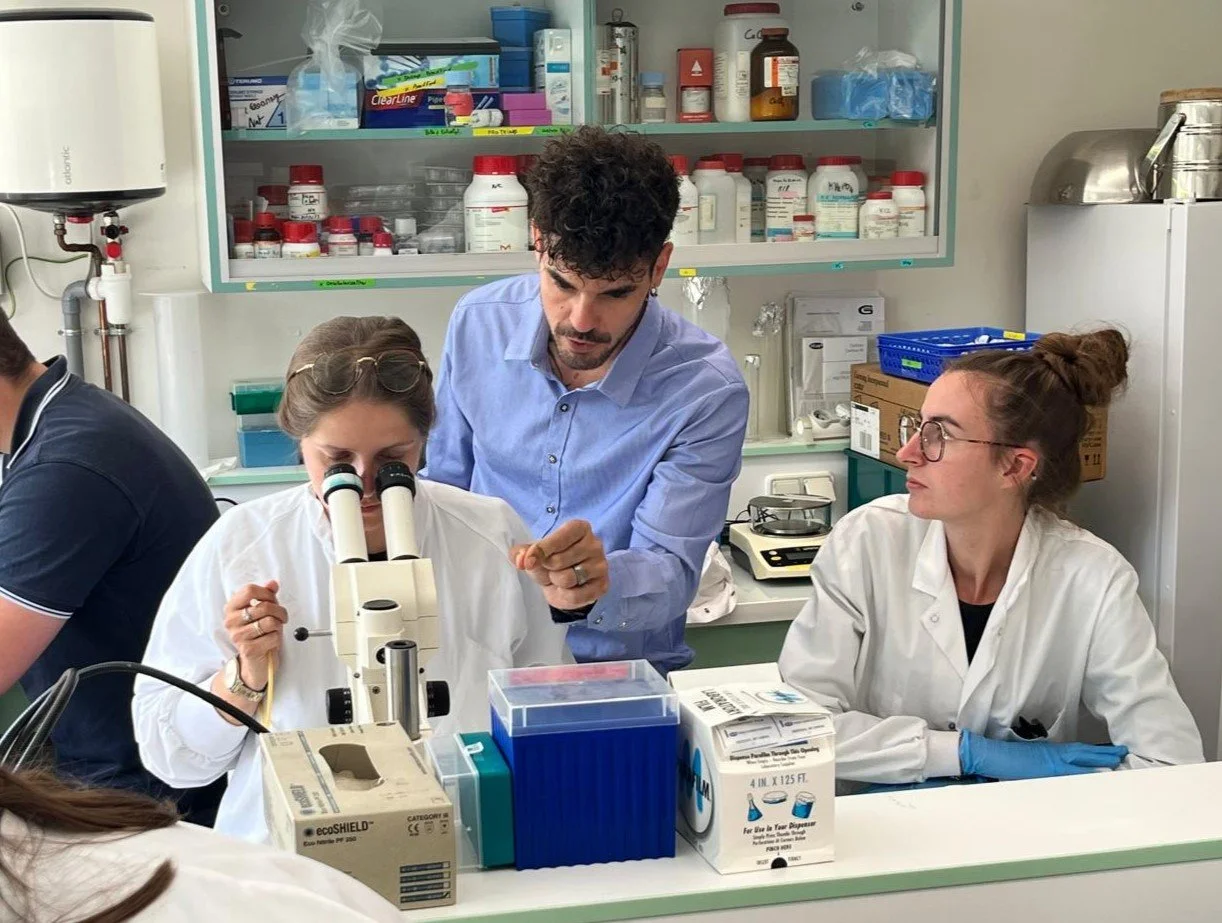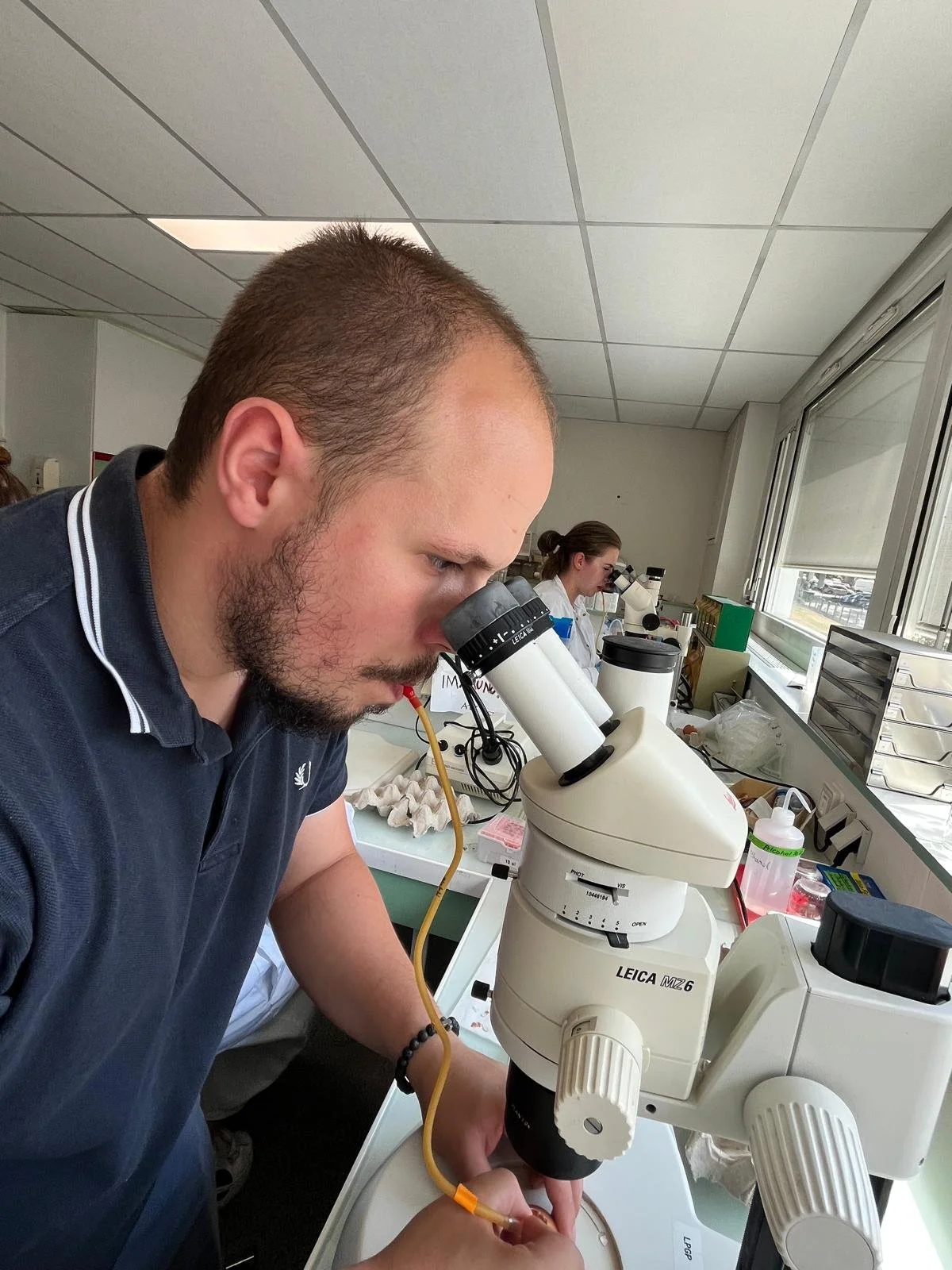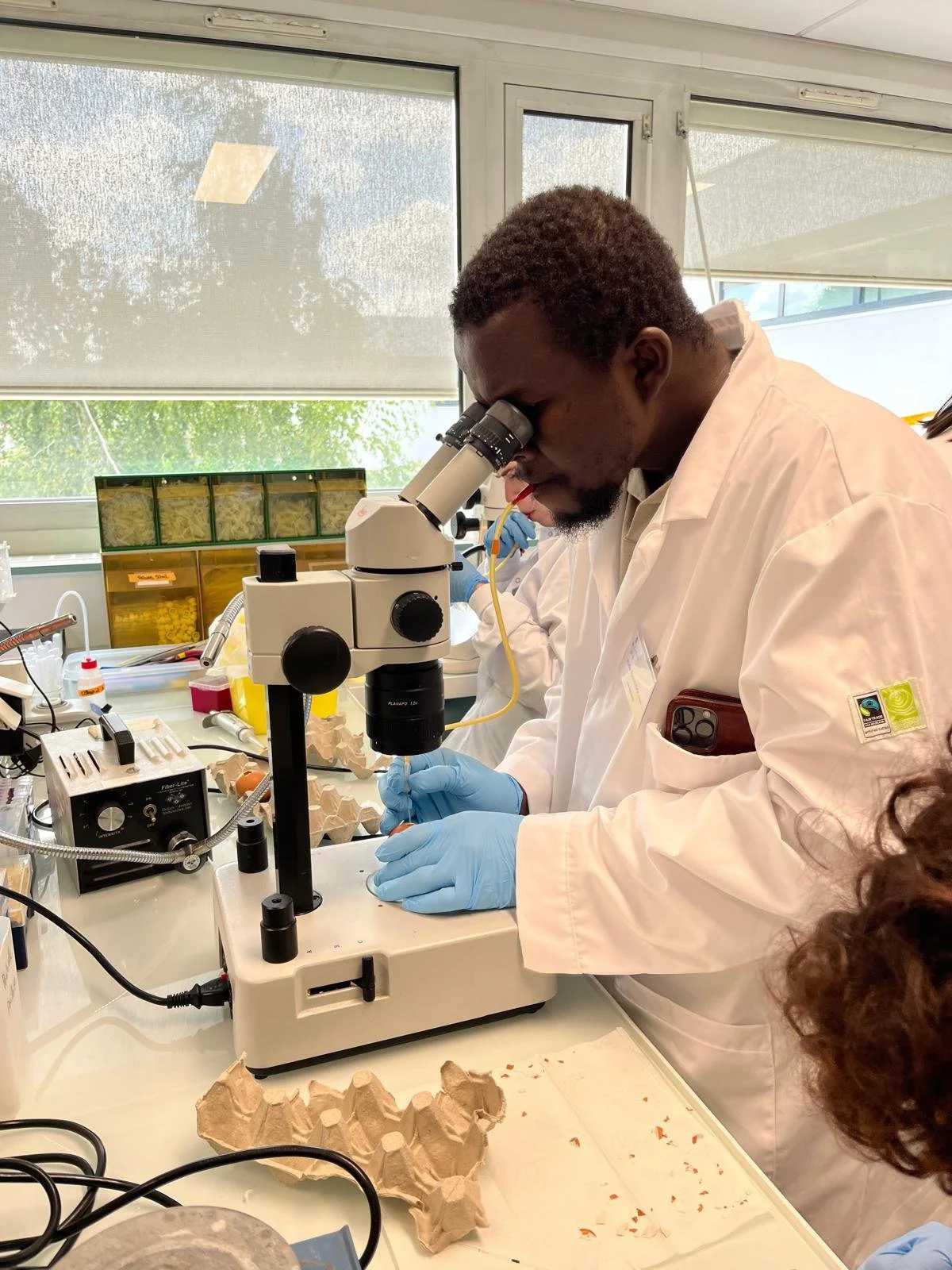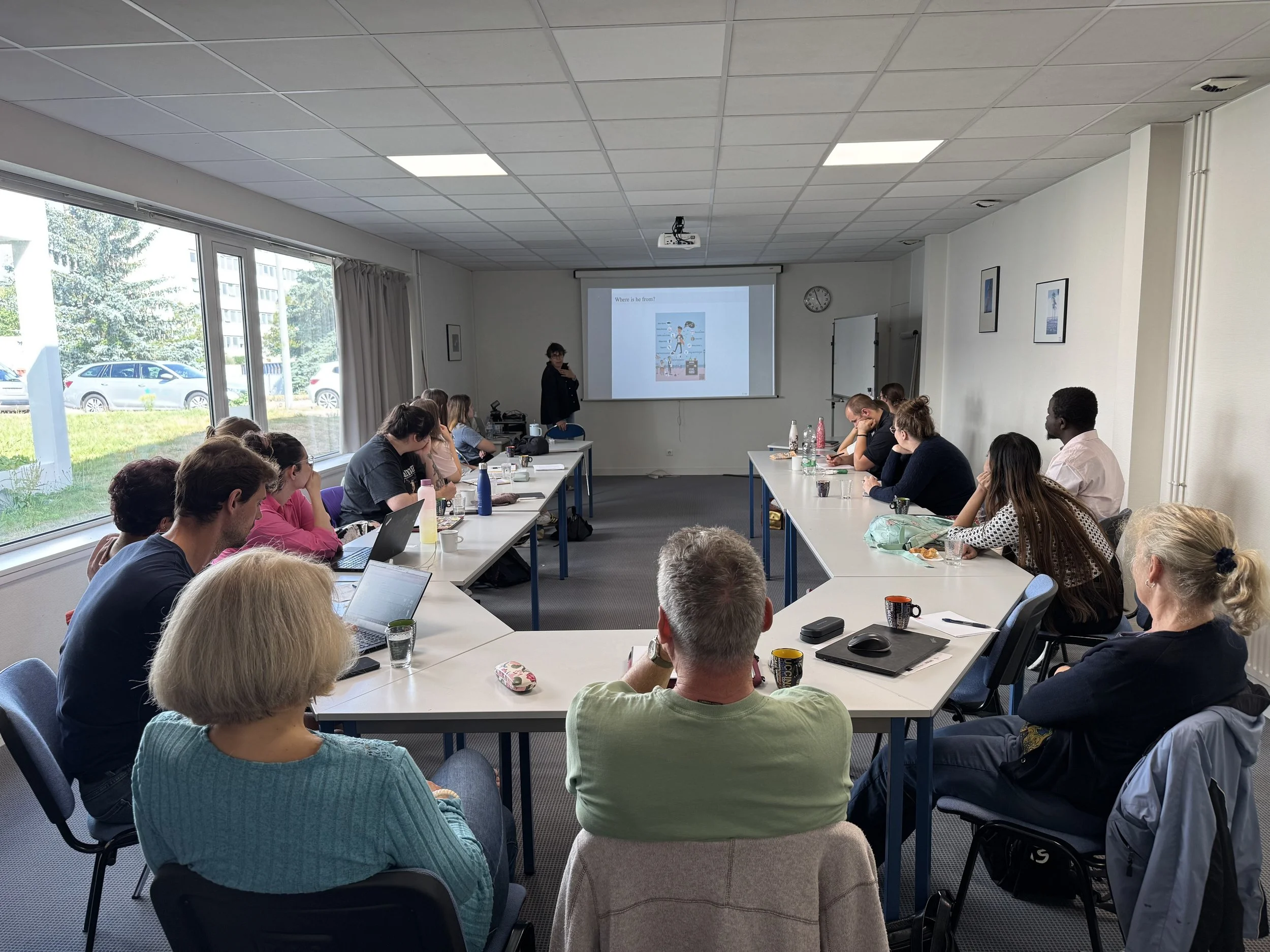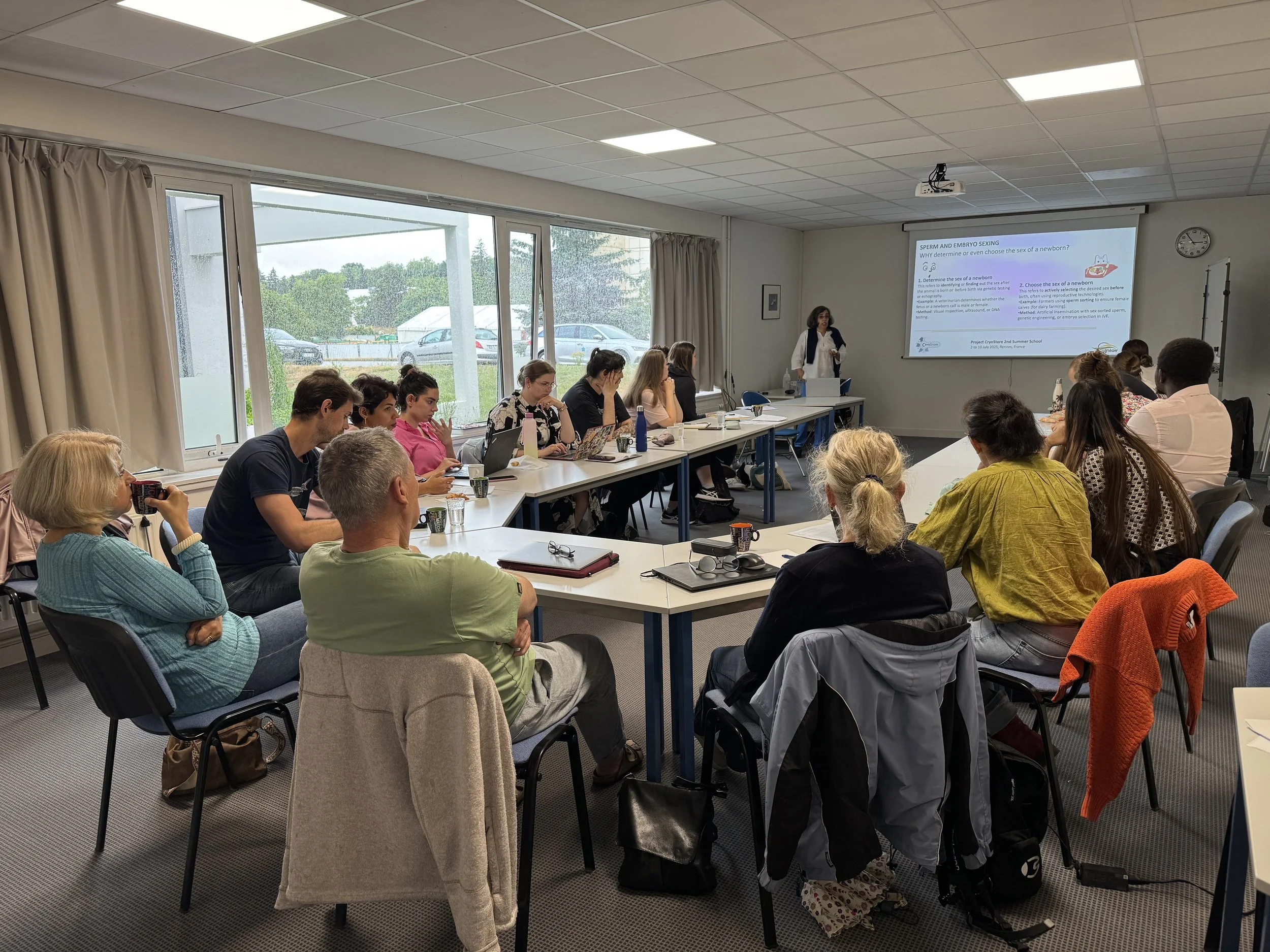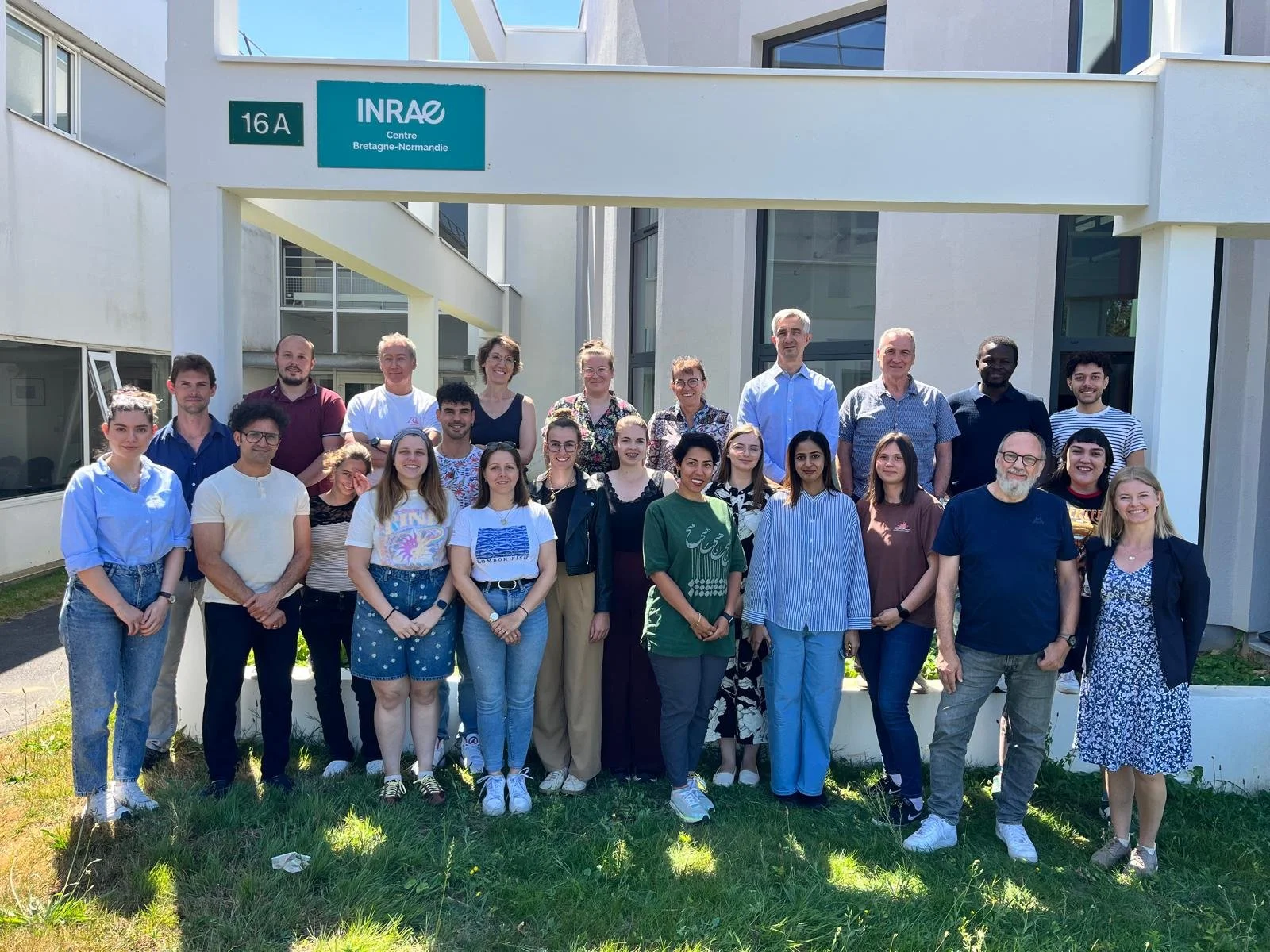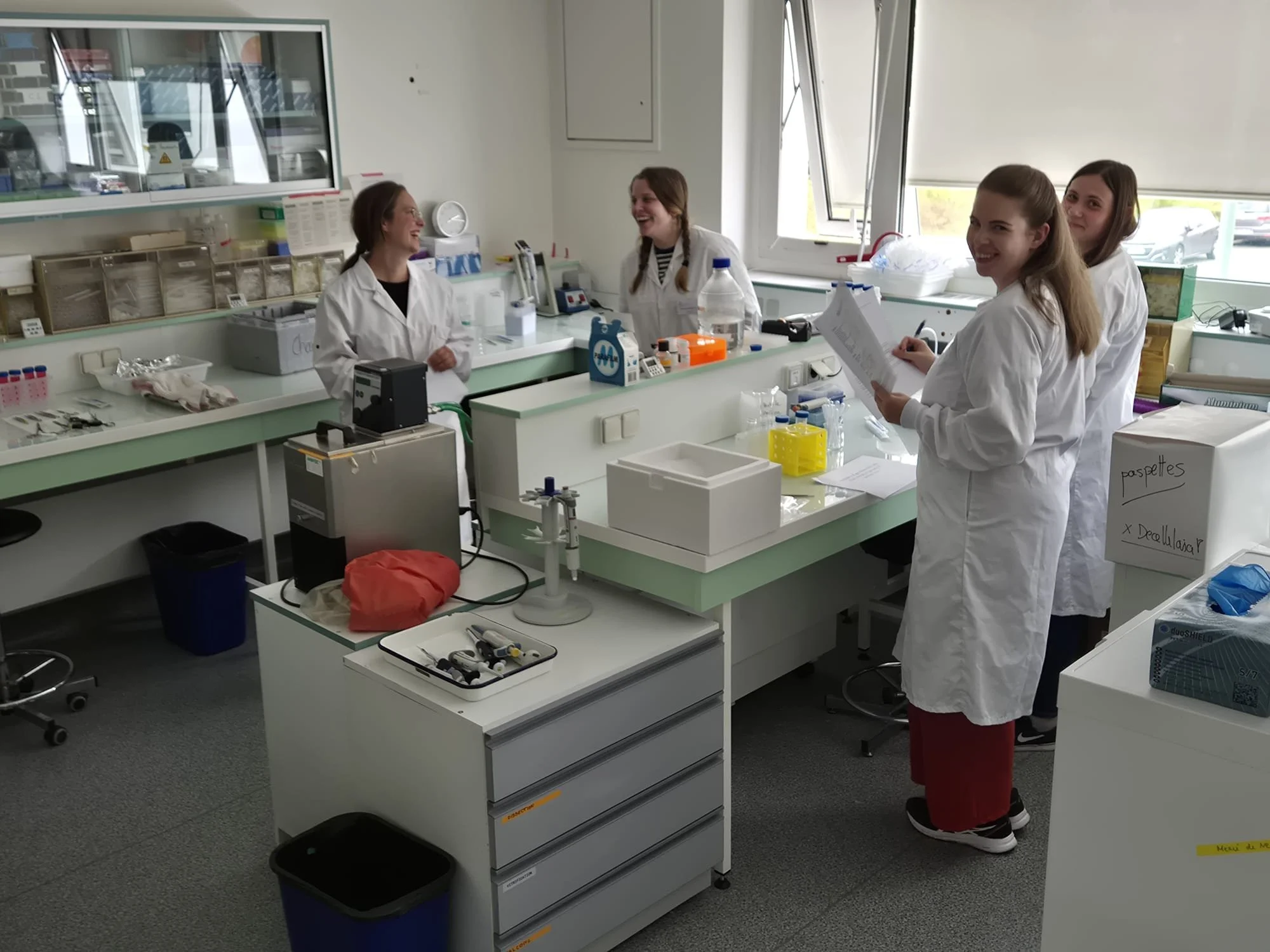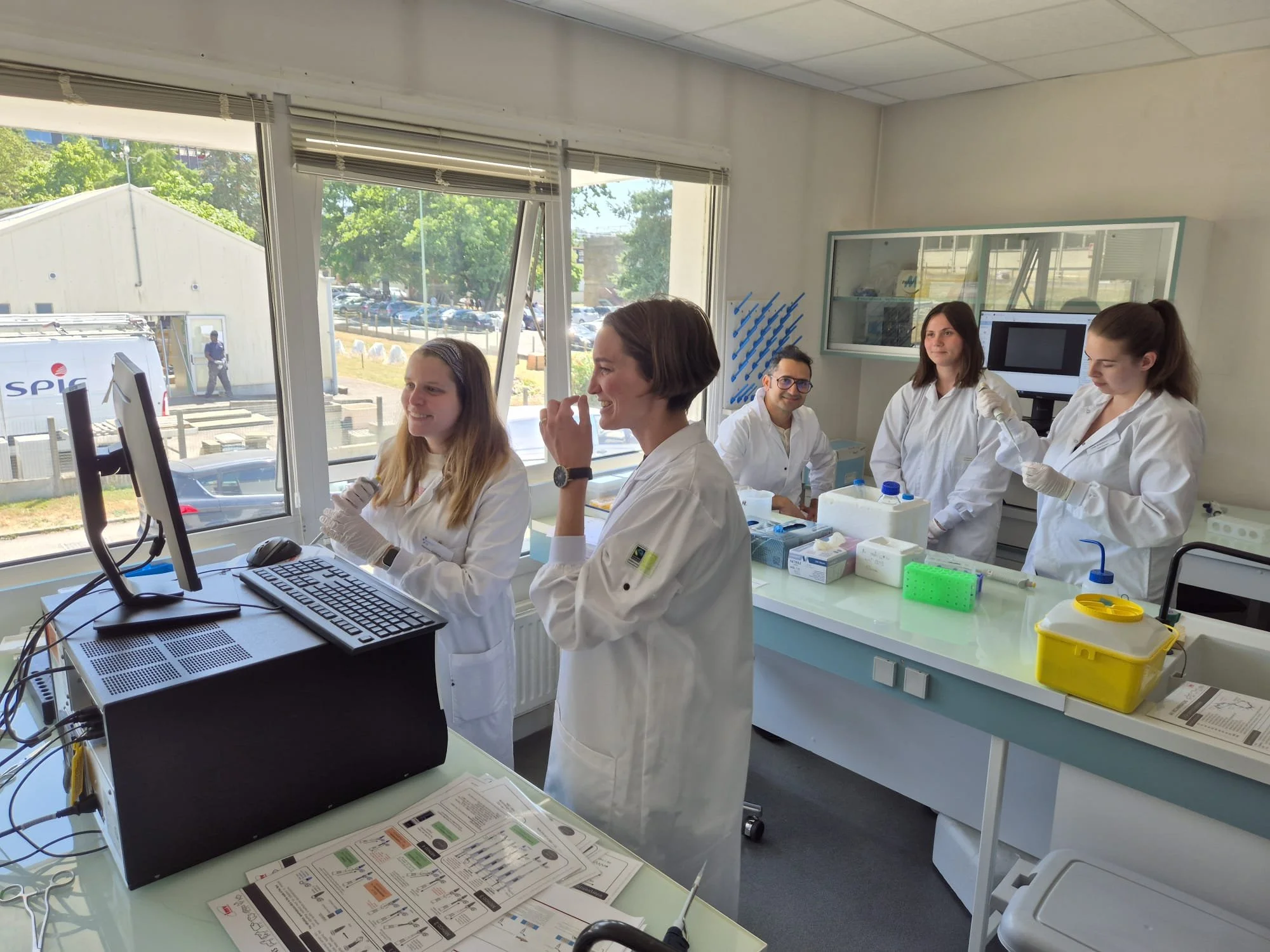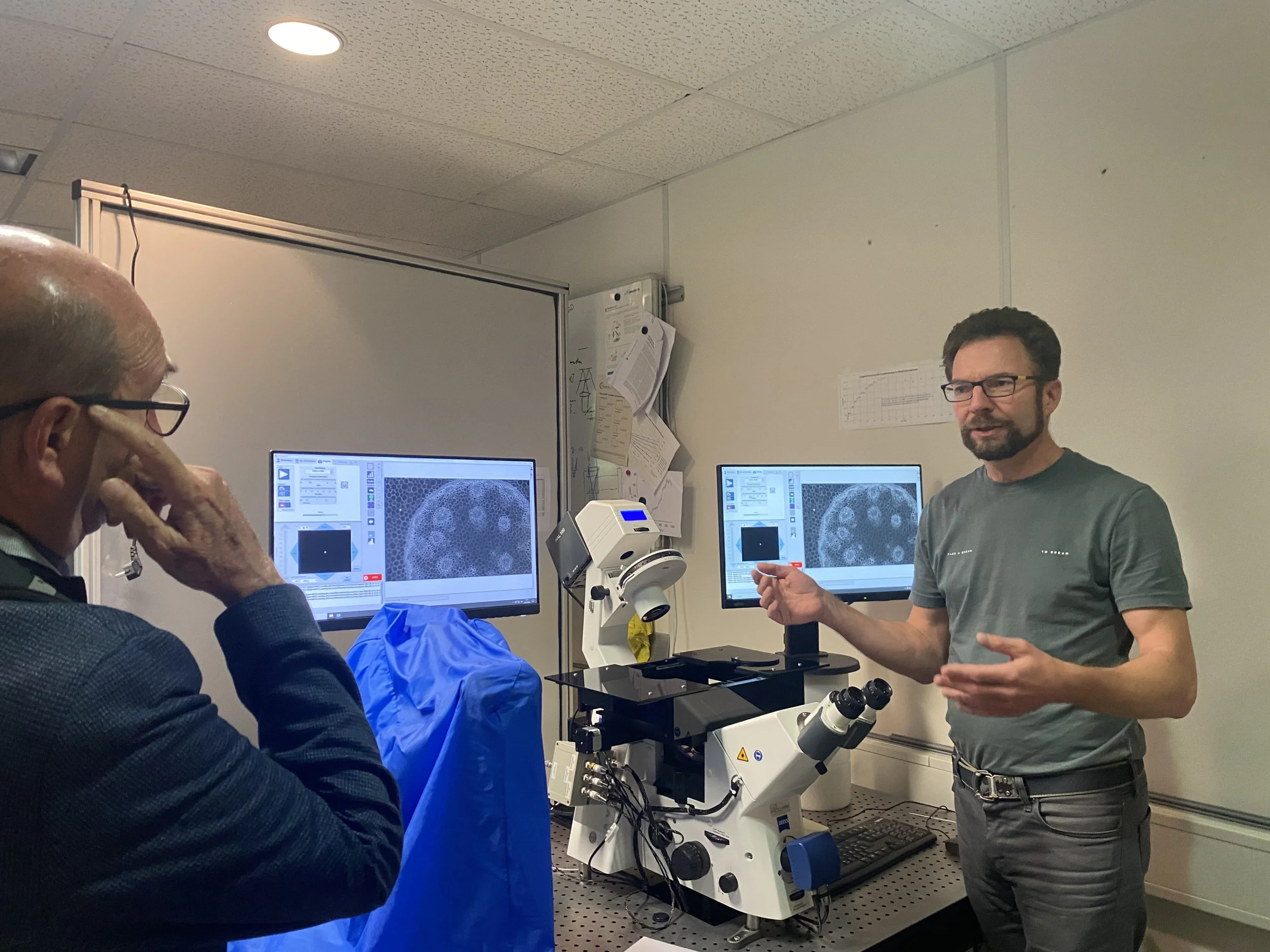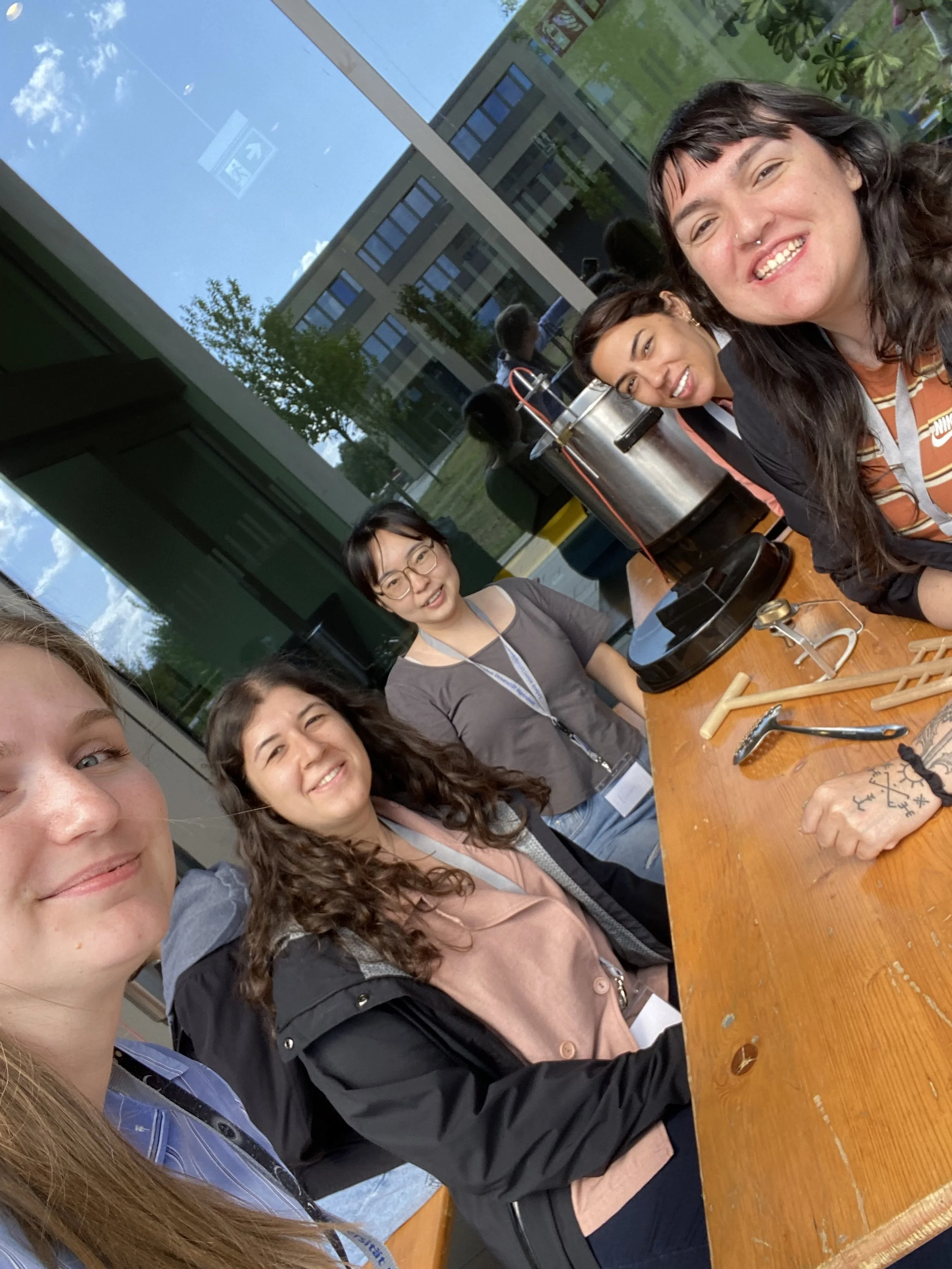CryoStore Newsletter
October 2025 | Issue No. 2Advancing Cryopreservation for Animal Conservation and Biodiversity
The CryoStore MSCA Doctoral Network brings together leading researchers, universities, and industry partners to advance cryobiology and reproductive science. Our mission is to train a new generation of scientists in cryopreservation, animal reproduction, and biodiversity conservation, while addressing key challenges that currently limit the long-term storage of farm animal germplasm.
Scientific Progress and Innovation 🔬
CryoStore researchers are making major strides in visualizing the effects of freezing-thaw procedures at the subcellular level. These innovations will enhance our understanding of cryodamage kinetics and support the design of less invasive, more effective cryopreservation methods.
DC Oleksandra Hubenia has developed a prototype temperature-controlled dynamic perfusion chamber compatible with Raman microscopy, enabling real-time monitoring of cryoprotective and vitrifying agents as they diffuse into cells.
DC Abdul-Rashid Iddi has created a prototype motorized directional freezing cryostage for multiphoton microscopy, allowing precise observation of ice formation dynamics during freezing.
Different animal species and germplasm types respond uniquely to freezing and thawing. CryoStore’s doctoral researchers are tackling these challenges head-on:
DC Mahsa Abdi and DC Batuhan Kaplan are developing improved cryopreservation protocols for porcine semen, focusing on increasing post-thaw sperm viability and fertilization success. Their research explores the use of ice-binding proteins and antioxidants to limit supercooling and ice recrystallization damage.
DC Sheyda Shapouri has investigated the effect of L-carnitine on cryopreserved teleost semen and ovarian tissues, identifying promising strategies for aquatic biodiversity preservation.
DC Paulina Pyrek has developed improved methods for cryopreservation of bovine oocytes and studied the molecular and functional changes following cryopreservation to enhance viability.
DC Firouzeh Sadeghzadeh is pioneering the use of primordial germ cell (PGC) cryopreservation in avian species—an alternative to embryo or egg freezing. Successful host determination and chimera development pave the way for restoring endangered poultry breeds.
While cryopreservation ensures long-term storage of valuable genetic resources, it may also induce epigenetic changes with potential transgenerational impacts.
DC Mafalda Almeida has developed a standardized protocol to assess epigenetic effects in teleost sperm and embryos, providing the foundation for further studies.
DC Linde Rombaut and DC João Gil Gomes Ferreira are expanding this work to sheep and fish, ensuring that cryopreservation maintain not only cell viability but also genomic and epigenetic integrity in future generations born from cryopreserved germplasm.
“These breakthroughs demonstrate CryoStore’s interdisciplinary power—combining reproductive biology, imaging technology, and molecular science to preserve the genetic diversity of farm animals and wildlife.”
Training & Events: Building Knowledge and Collaboration 🎓
CryoStore has successfully launched two Summer Schools combining cutting-edge scientific training with professional development. The events have brought together all 10 CryoStore DCs, consortium members, and several external PhD students.
The first Summer School, hosted by LUH and NMBU in Hannover, Germany (August 2024), focused on cryobiology fundamentals, cryopreservation techniques, microscopy tools, and epigenetic risks. Participants also received training in science communication, research integrity, and intellectual property rights. ❄️Read more: Blog
The second Summer School, organized by INRAE and NMBU in Rennes, France (July 2025), focused on reproductive cell biology, assisted reproductive technologies, and animal welfare across mammalian, avian, and fish species. Hands-on sessions included germ cell grafting and microinjection, CASA, and flow cytometry. The program also covered scientific writing, innovative outreach, and gender equality in research. ❄️Read more: Part 1 | Part 2
These events fostered collaboration, strengthened skills, and deepened the scientific foundation of CryoStore’s researchers—while also engaging external early-career scientists in the field of cryobiology.
Looking Ahead 🌿
CryoStore’s innovative research will lead to more effective, efficient, and secure cryopreservation procedures for farm animal germplasm. These advances will support both modern breeding programs and the conservation of Europe’s unique animal biodiversity, strengthening genetic resource banking and aligning with EU policies on sustainable farming and biodiversity preservation.
CryoStore Doctoral Network is funded by the European Union’s Horizon Europe Marie Skłodowska-Curie Actions (MSCA) under Grant Agreement 101120454.
Selected photos from the first and second Summer Schools.

